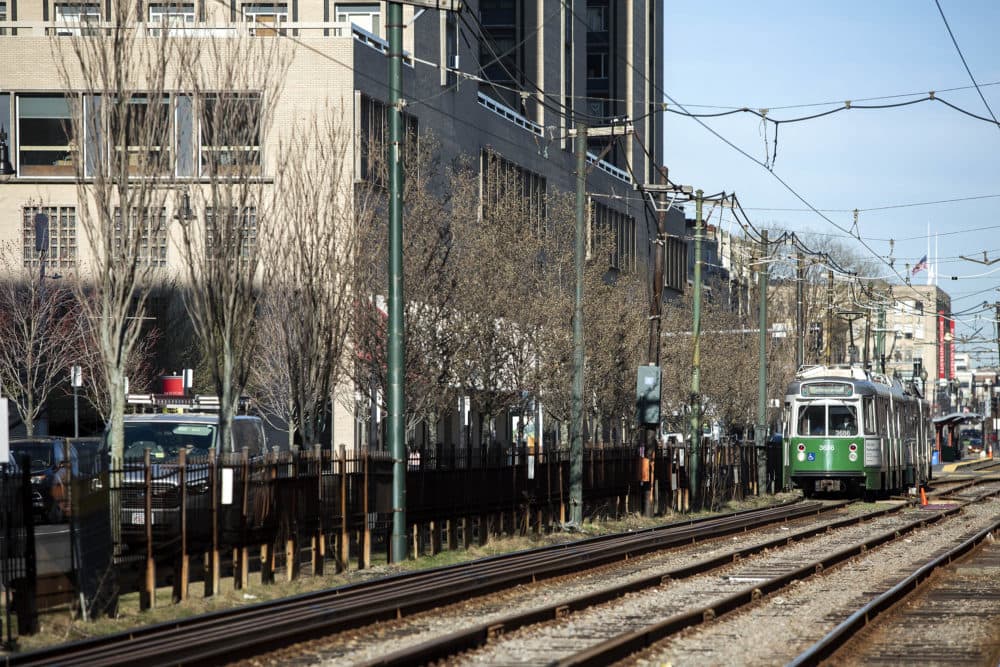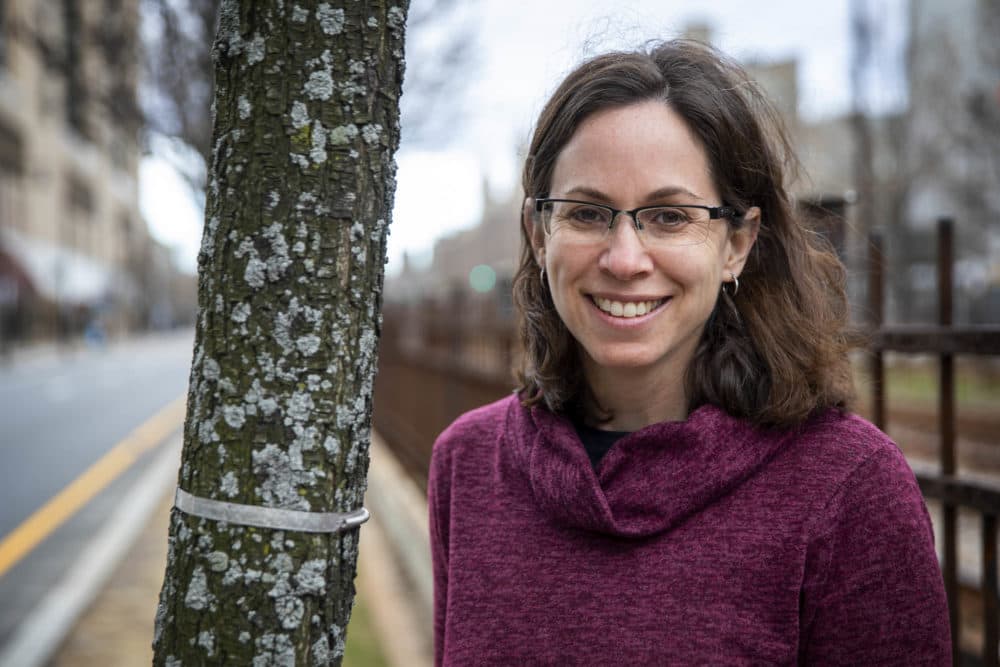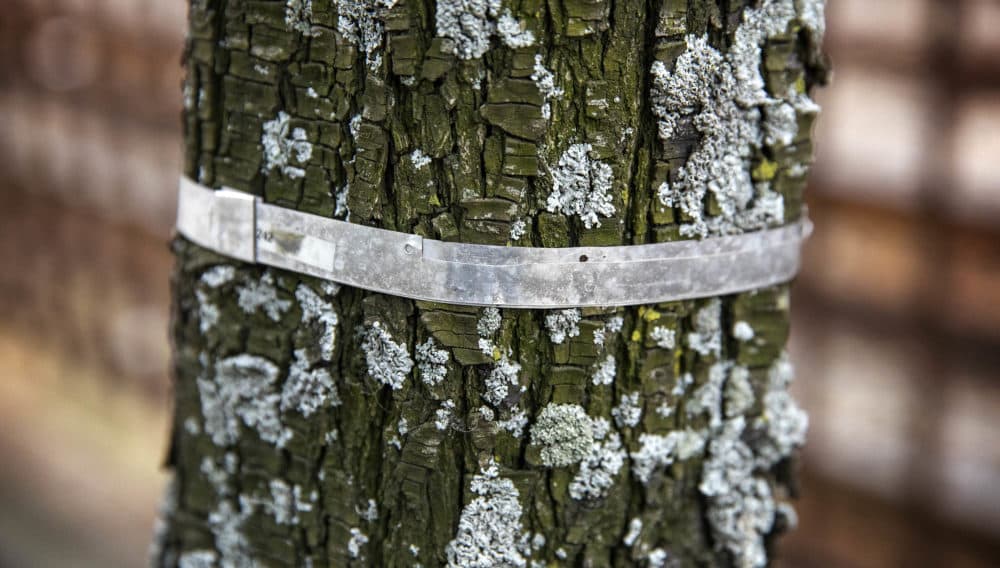Advertisement
Grounded In Science, Climate Researchers Are Rethinking How Often They Fly
Resume
Boston University biology professor Pamela Templer is a real-life Lorax. She studies the effects of climate change on trees across New England: from the White Mountains of New Hampshire to the Harvard Forest in central Massachusetts, and in urban areas like the campus at Boston University along Commonwealth Avenue.
“I love working with trees,” Templer said. “I mean, if you look at them, it’s like looking at history.”

History, in this case, is a small, leafless hardwood tree. It looks like it might blow over if a good gust of wind struck it just right. But according to a small silver band wrapped around the tree to measure its trunk size, this one is actually growing pretty fast.
Researchers believe warmer temperatures are making trees in cities grow at much faster rates than trees in rural areas.
But heat, overall, isn’t a good thing. Even though Templer described New England's trees as "hearty" and "resilient," the rising temperatures are damaging them. Warmer winters are shrinking snowpack in forests, changing soil dynamics, and impairing certain species’ ability to do things like make maple syrup.
“It’s really important to understand how the climate is changing,” she said.

Before the pandemic, Templer traveled the world to spread that message, to meetings in places like upstate New York, Kentucky, and Washington, D.C. She even flew to Madrid, Spain, for a United Nations climate conference in 2019.
These trips, in a way, were intended to help solve environmental challenges. With every trip, however, Templer emitted more of the greenhouse gases that are currently making life more difficult for the trees she studies so closely.
Luckily, this past year has been something of a revelation.
“We can do a lot of work just as productively on Zoom,” she said.
Other climate researchers are also rethinking travel because of the pandemic.
At elite universities, faculty have been known to produce the carbon footprint of a small city of 27,500 people, according to an assessment by the University of California, Santa Barbara. And on average, climate scholars take more flights per year than researchers from any other academic field, according to a 2017 survey.
A team of undergraduate researchers and a BU faculty member published a report in January that quantified the scope of the university’s employee air travel emissions. The report estimated employee air travel added up to 8,376 metric tons of carbon dioxide in 2019. That’s equal to the carbon footprint of about 967 homes’ energy use for one year.
“How do we come back from the pandemic and capitalize on these giant systematic changes that we’ve already been able to implement?” undergraduate researcher, Olivia Henning wondered. “And how can we bring those back into how we go back to our new normal in a way that’s sustainable?”
Despite a decline in travel emissions in 2020, the report suggested a return to pre-pandemic travel levels is not out of the question. In a survey of 118 staff and faculty, majority said they planned to return to their 2019 travel habits once restrictions were lifted. (Disclosure: Boston University holds the broadcast license for WBUR. WBUR employees were not included in this study.)
That’s alarming to Jacqueline Ashmore, executive director of Boston University’s Institute for Sustainable Energy and co-author of the report.
“People expect to go back to right where they were beforehand,” she said, “and we just had a whole year of thinking differently.”
Survey participants said, on average, about 66% of their travel was necessary and that not traveling could negatively affect their careers. Large conferences, participants answered, were viewed as the most important types of events to attend in person.
Scientists around the country largely agree — Zoom has its limits. A poll published in March of more than 900 Nature readers found that 69% believed the biggest drawback of virtual conferences was “poor networking opportunities.”
Robinson Fulweiler, an ecologist and professor in Boston University’s biology department and earth and environment department, said there’s “an organic thing” that happens at in-person conferences that help with networking.
“A human interaction — you can’t really underestimate that,” she said.
Fulweiler thinks that if well-known climate scientists set an example by committing to travel less, it could lead to a culture shift in the academic world to more online meetings.
And if that were to happen, then there’d be another potential added benefit: increased accessibility. By eliminating travel requirements, virtual conferences reduce barriers of entry and encourage broader, more diverse participation, which research shows improves the quality of science.
“It’s the right thing to do,” Fulweiler said.
This segment aired on April 8, 2021.
